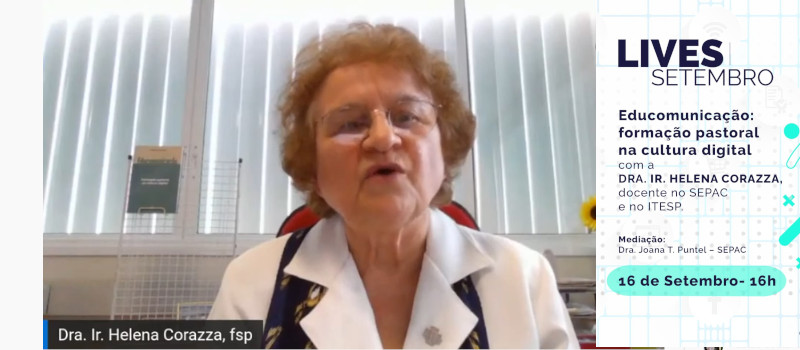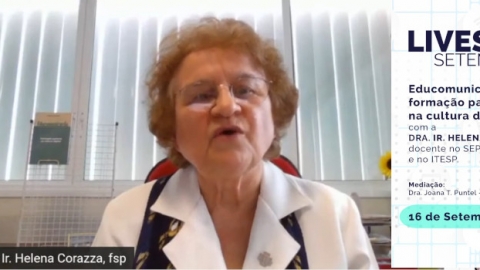Educommunication, pastoral training in digital culture

"Educommunication: pastoral training in digital culture" was the theme of the virtual conference that was given on Wednesday, September 16, by nun Paulina Helena Corazza, doctor in communication, director of the Communication Pastoral Service (SEPAC Paulinas) and coordinator of the Educommunication and Research Commission of SIGNIS Brazil. The online exhibition was scheduled within the framework of the cycle of conferences "On the paths of Communication" that the Service to the Pastoral of Communication, SEPAC, carries out weekly.
In her presentation, Dr. Helena Corazza shared part of the study of her doctoral thesis "Educommunication: paths and perspectives in pastoral formation", an experience that was also published in the book "Educommunication: pastoral formation in digital culture".
The thesis defended in 2015, at the School of Communications and Arts of the University of São Paulo (USP), addressed the concept of Educommunication, its history, the origins that come from reflection and the practices of Christian Churches and academics, in a time of repression in several Latin American countries. Among them the well-remembered Mário Kalpún who always promoted radio education and wanted each communicator to be an educator. Education for communication has always been recommended by the Church and widely practiced in popular and alternative communication in Latin America. Other authors such as Paulo Freire, Jesús Matín-Barbero, Orosco Gómez are remembered.
Taking this concept and these practices to the Public School, prof. Ismar de Oliveira Soares - from USP - resignified the theme by joining the term Communication and Education. Educommunication is not only a methodology that involves people in thinking, in practices and in intervention in society. She intends to educate for citizenship with a view to a society that respects human values and dignity, where solidarity is the basis of society, a communication for peace.
To say of Sr. Helena Corazza, educommunication is not reduced to the use of communication media but to communicational processes, understanding communication as a process. He explained that some characteristics of educommunication are dialogue, participation, collective construction, interface, intervention in society, different languages.
A fundamental aspect is the subject, the leading role that Educommunication works among children, youth, adults and all those who embrace this cause. Protagonism in the sense of appropriation, empowerment and capacity to be and act.
To rewatch the lecture of Sr. Helena Corazza, click here







